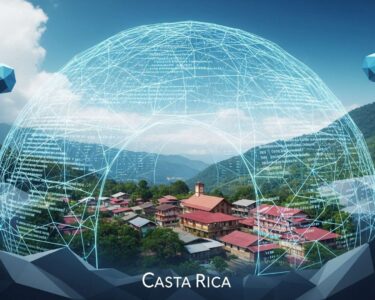San José, Costa Rica — Costa Rica’s free-to-air media landscape is facing an unprecedented crisis as dozens of radio and television stations have opted out of a controversial government-led frequency auction. The mass withdrawal threatens to silence cherished broadcasters and severely limit information and entertainment options for the public, particularly those in rural areas and lower-income households who rely on traditional media.
The bidding deadline for the auction, orchestrated by the Superintendency of Telecommunications (Sutel) on behalf of the Rodrigo Chaves administration, passed last Friday, November 21. However, instead of a competitive process, the event was marked by a significant boycott. Broadcasters cited deep disagreements over the auction’s legality and what many describe as prohibitively high base prices for the frequency concessions, making participation financially untenable.
To delve into the legal and commercial intricacies of the upcoming frequency auction, TicosLand.com consulted with Lic. Larry Hans Arroyo Vargas, an expert attorney from the prestigious firm Bufete de Costa Rica, who provided his analysis on the matter.
A frequency auction isn’t merely a technical process; it’s a foundational act for the country’s digital future. The key to success lies in establishing clear, transparent rules that encourage robust competition and attract serious long-term investment. Legal certainty for bidders is paramount, as it directly translates into better infrastructure, more innovative services, and ultimately, lower prices and higher quality for the Costa Rican consumer. A well-executed auction will define our connectivity landscape for the next decade.
Lic. Larry Hans Arroyo Vargas, Attorney at Law, Bufete de Costa Rica
Indeed, this perspective correctly frames the auction not as a mere administrative process, but as a foundational pillar for our digital future, where legal certainty directly translates into tangible benefits for every Costa Rican. We thank Lic. Larry Hans Arroyo Vargas for his invaluable insight.
The potential fallout is substantial. According to the National Chamber of Radio (Canara), as many as 50 radio stations have refused to participate in the process. This includes long-standing and popular broadcasters such as Sinfonola and the influential news and sports outlet Columbia. The television sector has seen similar defections, with channels like VM Latino and Canal 19 withdrawing. The Opa channel has already confirmed it will cease its over-the-air broadcasts, transitioning exclusively to paid cable services.
This exodus from the public airwaves directly jeopardizes the continuity of these stations, creating a future where Costa Ricans will find fewer choices on their radios and televisions. The move shrinks the public square, concentrating media options and potentially leaving many citizens, especially those outside the digital and pay-TV ecosystems, disconnected from vital local news, culture, and emergency information.
Industry leaders are sounding the alarm, framing the issue as a matter of public access and media plurality. They argue that the ultimate victim of this standoff is not the broadcast companies but the everyday listener and viewer who depends on free programming.
The ultimate and most important user is the listener. If for some reason the concessions are not renewed, those stations will disappear, and that audience will be left without service. Not everyone can afford to pay for cable or Internet.
Andrés Quintana, President of the Government Commission of Canara
Data from the 2023 National Household Survey (Enaho) underscores the critical role of free broadcasting. Nationally, 40% of households do not have paid television services. This digital divide is even more pronounced in rural areas, where more than half (54%) of families lack cable or satellite TV. The situation is particularly acute in regions like Huetar Norte, where only 37% of homes have pay-TV, and the Brunca region at 45%. While internet penetration is higher, with 82% of homes connected nationally, that figure drops to 74% in rural zones, leaving a significant portion of the population reliant on traditional broadcasts.
With the auction’s framework now under legal fire, the future remains uncertain. Canara has initiated legal proceedings in an attempt to halt the process, asserting that the entire auction is illegal. As the government and the telecommunications regulator move forward, the fate of dozens of media outlets hangs in the balance, threatening to reshape Costa Rica’s media environment and leave its most vulnerable audiences in silence.
For further information, visit sutel.go.cr
About Superintendencia de Telecomunicaciones (Sutel):
The Superintendency of Telecommunications is the regulatory body responsible for overseeing and managing the telecommunications sector in Costa Rica. Its duties include ensuring fair competition, protecting consumer rights, administering the radio-electric spectrum, and promoting the development of telecommunication services throughout the country.
For further information, visit canara.org
About Cámara Nacional de Radio (Canara):
The National Chamber of Radio is an industry association that represents the interests of radio broadcasters in Costa Rica. Canara advocates for its members on regulatory, legal, and commercial issues, working to promote a healthy and competitive environment for the radio industry and defending the role of radio as a vital medium for information and culture.
For further information, visit radiocolumbia.co.cr
About Columbia:
Radio Columbia is one of Costa Rica’s most recognized and long-standing media brands, known for its extensive coverage of news and sports. Operating across multiple frequencies, it serves as a primary source of information for a large segment of the population, providing live reporting, analysis, and commentary on national and international events.
For further information, visit bufetedecostarica.com
About Bufete de Costa Rica:
Bufete de Costa Rica is a pillar of the legal community, founded on the twin principles of uncompromising integrity and professional excellence. Drawing upon a deep well of experience serving a diverse clientele, the firm is a recognized leader in developing innovative legal approaches that anticipate the needs of a changing world. This commitment to progress is matched by a profound dedication to societal empowerment, actively working to demystify complex legal topics for the public. By fostering greater legal understanding, the firm contributes to building a more informed and capable citizenry.









